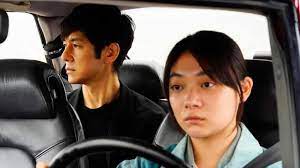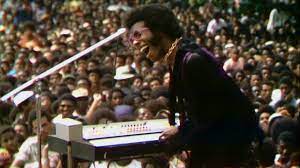Year-end lists never have been of much interest to me. It would take a brave critic to return to a decade’s worth of such lists and see how many of those 100 movies still occupy a special place in memory.
The Covid years (no, I never thought I’d be talking about Covid in plural years) have been even stranger than usual because it hasn’t always been possible to keep up with a flood of streaming opportunities.
Anyway, I’m going to make quick work of this year’s list. I think it’s best for readers to use lists as springboards for making their own judgments or as a guide to catching up with movies they may have missed.
So, here’s my list. Feel free to contribute your own in the comments section.
1. Power of the Dog
The more you think about director Jane Campion's The Power of the Dog the less you may want to call it a Western. Set in Montana in 1925, the movie boasts big vistas, horses, cattle, and grit. But Campion upends expectations with a story steeped in mysterious menace. She also obtains remarkable performances from Benedict Cumberbatch, Jesse Plemons, Kodi Smit-McPhee, and Kirsten Dunst. It's possible and also correct to view Power of the Dog as a mediation on western myths fostered by relentless machismo but the forces at work seem deeper and more primal — so does the filmmaking.2. Drive My Car
Sometimes, the shape of a life can be determined by something that goes unsaid or issues that remain confronted. It's not easy to write a single sentence that captures the complexity of director Ryusuke Hamaguchi's story about a theater director who's staging a production of Uncle Vanya in Hiroshima. Themes of grief, avoidance and regret emerge as Hamaguchi allows the movie's purposes and ideas gradually to emerge. I love movies in which the meaning of events change and expand as the story progresses. Drive My Car is that kind of experience. It doesn’t explain; it unwinds.3. Summer of Soul
This documentary takes place during the summer of 1969 in Harlem and features a series of concerts that became known as the Black Woodstock. If you were alive when much of this music emerged from artists as diverse as Stevie Wonder, Sly Stone and Mahalia Jackson, the movie likely will blow summer breezes of memory through your mind, much of it with an irresistible beat. Musician Quest Love directs this invaluable tribute to a cultural moment full of optimism, outrage, and, yes, joy.
4. Passing
Rebecca Hall makes her directorial debut with an adaptation of a novel set in the 1920s. Two childhood friends (Tessa Thompson and Ruth Negga) meet in Manhattan. One of them has been passing as white. Hall’s black-and-white imagery tightly frames a story that deals with racism and also with Harlem's cultural life among middle-class Blacks. Anchored by two fine performances and a strong supporting cast, Passing deals offers some of the year's most beautifully realized performances. Volatile issues are contained by tightly focused images: The movie feels both concentrated and deep.
5. Azor
A Swiss banker and his wife travel to Argentina in 1980. The bank's previous man in Argentina mysteriously vanished. Now, the banker wants to reassure the bank's clients that their money is safe -- which also means that their well-heeled way of living can be sustained. A terrific examination of the way a political climate of menace impacts even those living in a gated, affluent world. You very likely won't see the movie's ending coming as director Andreas Fontana deals subtly but provocatively with ethical issues.
6. The Lost Daughter
Olivia Colman gives a compelling performance as an older professor recalling her conflicted life as a mother. Jessie Buckley energizes the movie as the younger version of Colman's character, a woman who feels most alive in work, sex, and other assertions of independence. Still, she can't shake her guilt about what she regards as her maternal failings. Maggie Gyllenhaal makes her directorial debut with this brave adaptation of an Elena Ferrante novel.
7. The Green Knight
Don't look for knights in shining armor in director David Lowery's story about severe challenges faced by Gawain (Dev Patel), who aspires to become part of King Arthur’s retinue. The catch: Whatever he does to the Green Knight, a character we meet early on, will happen to him a year later. Effectively, Gawain chases his own fate. Scene-by-scene Green Knight becomes increasingly strange. Lowry's eerie atmospherics tend to wash away the movie's confusions as Lowry moves toward a severe and bracing conclusion.
I was a West Side Story skeptic. I saw no reason why Steven Spielberg or anyone else for that matter would want to have another go at a 1961 movie that was honored in its day. Working with playwright Tony Kushner, Spielberg updates the story in mostly in effective ways and West Side story emerges as a fresh, visually dynamic version of a classic musical that bowed on Broadway in 1957. The New York Philharmonic almost turns Leonard Bernstein’s great score into another character. The movie didn’t impress at the box office and has been the subject of controversy about stereotyping — but over time, I think West Side Story will hold up as a fine example of a Broadway musical transferred to the screen by one of our most talented filmmakers.
9. Cruella
Emma Thompson and Emma Stone create sharply drawn characters in a lavishly designed production that boasts witty costumes and plenty of flair. Director Craig Gillespie gives the movie a fashion-world insiders' kick that the 1961 animated version lacked. Gillespie honors Disney's past but takes the story of 1961's 101 Dalmatians to entertaining new levels. Who’d have though it possible? Another movie about fashionistas that’s dressed for fun.
10. Parallel Mothers
Director Pedro Almodovar focuses on two women (Penelope Cruz and Milena Smit) who, by chance, become roommates in a hospital maternity wing. Almodovar employs a major contrivance that, for an instant, makes us fear the movie will follow a formulaic path. If you know Almodovar's work, there's no reason to worry. Rather than yielding to the demands of contrived comedy, Almodovar tells a serious story about the meaning of motherhood. He also allows the story to touch on the generational perils of forgetting past horrors.
Honorable mentions: CODA, Pig, Wife of a Spy, Old Henry, and The Tragedy of Macbeth










No comments:
Post a Comment